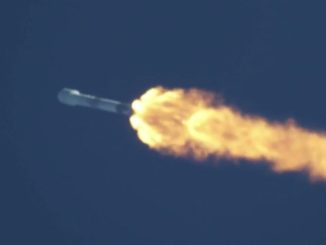
After a series of weather-related delays, SpaceX is on the verge of launching its Falcon 9 rocket from Cape Canaveral Space Force Station. This mission will deploy 24 satellites as part of Amazon’s ambitious Project Kuiper, aimed at establishing a broadband internet constellation in low Earth orbit. The launch, designated as Kuiper Falcon 03 (KF-03), is scheduled for 8:08 p.m. EDT (0008 UTC) on October 12, 2025.
The mission faced more than a week of postponements due to unfavorable weather conditions both at Cape Canaveral and offshore. The 45th Weather Squadron has now projected a 95 percent chance of favorable conditions for the upcoming launch window. Although weather officers indicate a moderate risk for the booster recovery area, they expect winds to shift from the northwest to the north, allowing for mostly clear skies.
Launch Preparations and Recovery Plans
SpaceX will utilize the Falcon 9 first stage booster B1091 for this mission, marking its second flight. Previously, this booster successfully launched the KF-02 mission. Following its deployment of the satellites, B1091 is planned to autonomously land on the drone ship Just Read the Instructions, approximately eight minutes post liftoff. If successful, this will be the 138th landing on this vessel and the 517th booster landing overall.
The deployment of the Kuiper satellites is set to commence more than 56 minutes after liftoff, with the entire sequence concluding in less than eight minutes. This launch will increase the total number of satellites in the Kuiper constellation to 153, enhancing Amazon’s efforts to provide broadband internet service globally.
Historical Context and Future Prospects
This mission represents the sixth launch supporting the Project Kuiper constellation. To date, there have been three launches using United Launch Alliance Atlas 5 rockets and two prior missions conducted with Falcon 9 rockets. The successful deployment of these satellites is crucial for Amazon’s plans to expand internet access to underserved regions worldwide.
As SpaceX prepares for this significant mission, the anticipation surrounding the launch continues to build. Live coverage will be available approximately one hour before liftoff, allowing space enthusiasts and industry watchers to follow the event closely.







